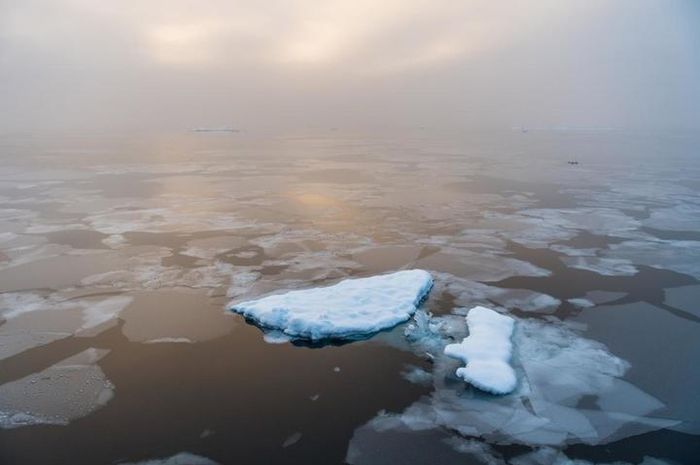A recent study revealed that acidification in the Arctic Sea is expected to worsen due to the absorption of large amounts of carbon dioxide (CO2). Increased CO2 causes cold northern waters to become more acidic. In the end, it causes the decay of hard-shelled marine animals such as shells and "sea butterflies".
Sea water absorbs CO2 as part of the natural climate cycle. According to the NOAA Carbon Program, it triggers a series of chemical reactions that reduce the pH of concentrations of seawater and carbonate ions.
Mollusks, coral reefs, and crustaceans pull these carbonate ions from sea water to create their hard shells. In other words, decreasing ion levels causes their shells to weaken over time. Since these animals play an important role at the bottom of the sea food chain, their effects can affect the predator level.
To ensure their research, researchers from the University of Bern used the current climate model. They simulate how the formation of the Arctic sea and its "carbon inventory" will change based on surface water.
Greater regional anthropogenic carbon storage and ocean acidification are expected to worsen.
The Arctic Ocean will absorb 20% more CO2 if warming rates continue to increase. This will cause a decrease in calcite by the end of the century and worsen climate change.
"These events lead to substantial ocean acidification, especially at depths of 200 to 1,000 meters. This has important implications for the food chain of large fish and marine mammals that depend on calcium carbonate animals, "said Jens Terhaar, a member of the marine modeling group of the Oeschger-Center for Climate Change Research at the University of Bern.
The researchers concluded that this finding has "major implications" for the sensitive and already vulnerable Arctic marine ecosystem due to the effects of climate change and human activities.
The habitat available for key species is likely to continue to decline - affecting all levels of the food web. Acidification is stated to "negatively affect the growth, survival, and behavior" of important species.

No comments:
Post a Comment